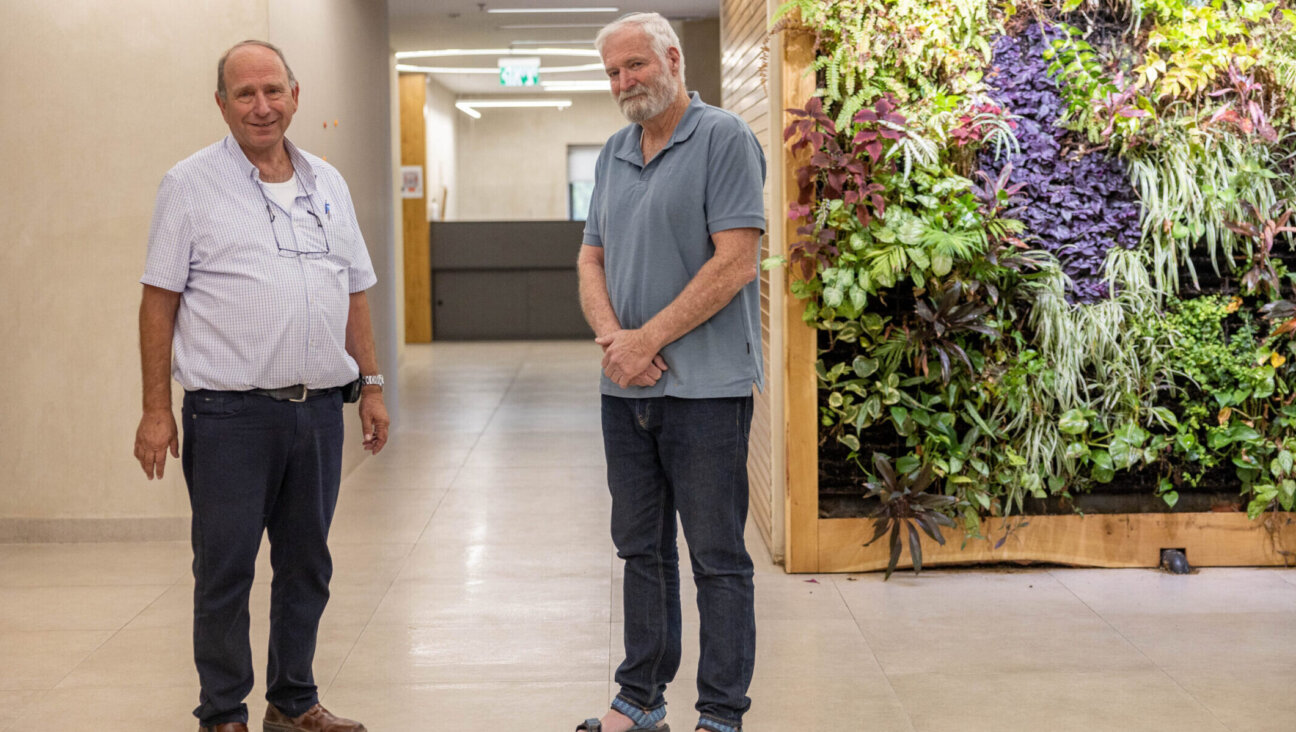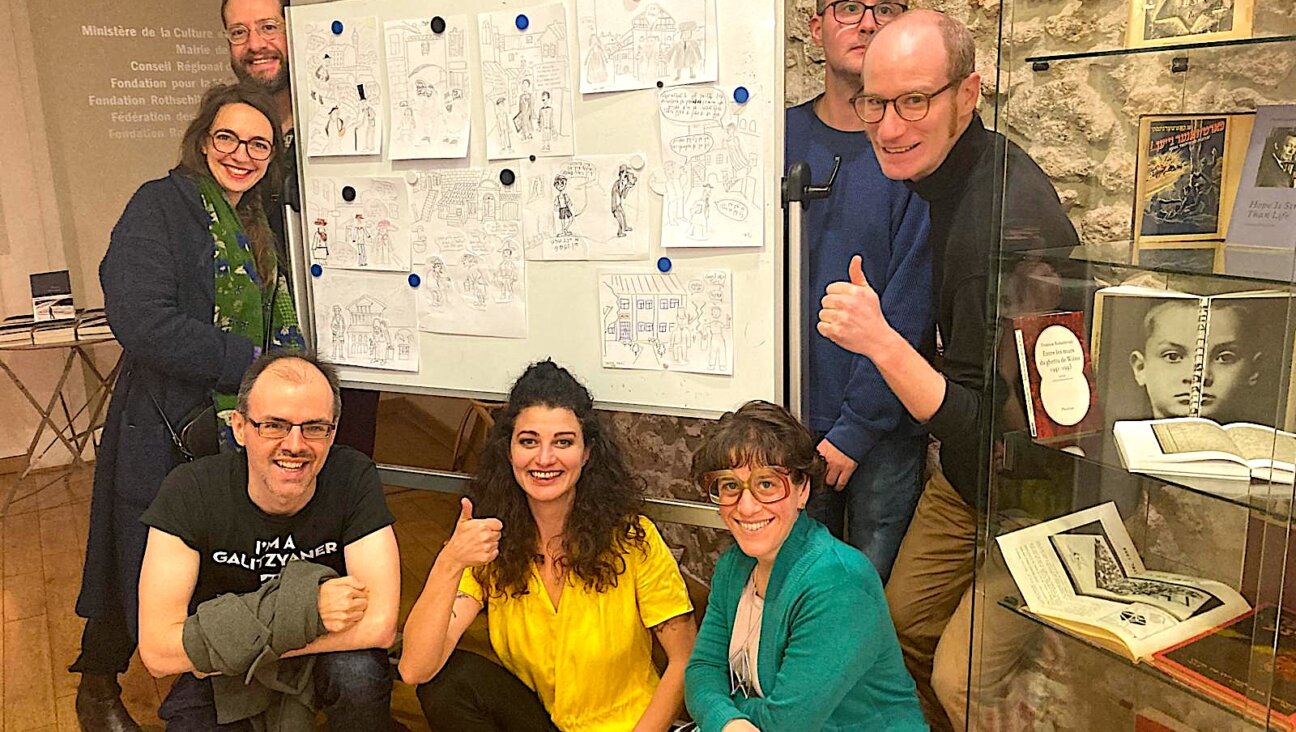July 14, 2006
Rabbi Eric Yoffie accurately observes in a July 7 opinion article that many Israeli leaders do not fully understand Diaspora Jewry (“Confront Ignorance of Diaspora Movements”). However, he ignores the corresponding lack of appreciation for the nuances of Israeli society by an American Jewry that does not speak Hebrew and in the main has never visited Israel. From his limited perspective, the solution becomes “to speak out far more vigorously” and to raise questions to potential candidates for the Israeli presidency.
There is a critical need for an ongoing dialogue between Israeli and Diaspora Jewry. Both Yoffie and I recently attended the World Zionist Conference and the General Assembly of the Jewish Agency, where there was real progress in the process of renewing and reforming the WZO to better reflect the balance between Jewry in Israel and the Diaspora. Yet attention was effectively diverted to the old issue of what title President Moshe Katzav, who has served in his position for six years, uses when meeting with Reform rabbis.
Even in the Orthodox community, where there is far greater interaction and most of its youth from all over the world spend at least a year studying in Israel, Jews in Israel and the Diaspora often reflect differing mentalities. The gap in the broader community is growing steadily wider. Some of the differences are inherent, but recognizing a common Jewish destiny and showing sensitivity to the many-faceted Jewish people will accomplish more than confrontations.
Rabbi Yosef Blau
President
Religious Zionists of America
New York, N.Y.
Iranian Influence Also To Be Found in Senegal
Although Senegal is better than most African countries when it comes to human rights, there is still much to criticize (“Finding Kinship in Muslim Senegal,” June 16). Bands of Talibe, abused child beggars who are sent out by local Muslim religious leaders, roam the streets of Dakar and other cities. In spite of mandatory education to age 14, many children, especially girls, do not enroll in schools. Illiteracy rates are very high. Women’s rights are strongly lacking.
There are four Muslim brotherhoods in Senegal, three of which are home grown. Only one, the Lebu, is Sufi-based. This version of Sufism happens to be quite fundamentalist and fanatic. The main brotherhood, the Mouride, are becoming more and more influenced by Iranian and Saudi factions, are very strong politically — President Abdoulaye Wade is Mouride — and are not at all tolerant.
Although the president of Senegal claims to be a “pro-Western moderate,” last year he unilaterally postponed elections, has had one of his key opponents arrested, and quite possibly will cancel the presidential election scheduled for next February — claiming no one is running against him. This is a huge step backward for one of the most stable countries in post-colonial Africa. Many people are worried. Further, Wade has empowered his son, Karim, to oversee several very large public works projects.
There is no animosity against Jews in Senegal, but the Senegalese have had virtually no exposure to Jews.
Senegalese are too focused on local issues to be much concerned about international politics, including the Israeli-Palestinian conflict. However, they are very much opposed to the American occupation of Iraq. Many observers fear that outside influence by Iranian factions and others could result in more anti-American sentiments, further assaults on human rights and a movement away from Western connections.
Lewis Shaw
Program Coordinator Dakar and Madrid Campuses
Suffolk University Sawyer School of Management
Boston, Mass.
The June 16 “Letter From Dakar” by Rabbi Arthur Schneier made me feel better about the human condition than I have in a long time. We need to clone the rabbi a million times, and peace will be possible in our lifetime.
Jean Rosenthal Harris
Walnut Creek, Calif.
Give Students College Credit for Yeshiva Study
The continued refusal of Israel’s Education Ministry to recognize bachelor’s degrees that include college credits for yeshiva study in Israel reflects the secularist bias of bureaucrats, rather than a legitimate academic assessment (“Y.U. Prez ‘Outraged’ Over Israel Snub,” June 30).
David Rabinowitz and Gary Silber, the valedictorians for Touro College’s class of 2006, both earned college credits with Touro for studying at well-known yeshivas in Israel, David for one year, Gary for two years. Each has been accepted to Yale, Harvard and Columbia Law Schools for this fall.
Clearly, the most prestigious law schools in the United States have no problem with the legitimacy of post-high school yeshiva studies as part of a college program.
Robert Goldschmidt
Vice President and Dean of Students
Touro College
New York, N.Y.
Engagement Requires Orthodox Awareness
Opinion writer David Eliezrie delivers an important message of cooperation between Orthodox Jews and members of the liberal Jewish establishment (“Bring Orthodox to Communal Table,” June 30). However, his message is greatly compromised by his referring to the views of scholars such as Rabbis Irving Greenberg and David Hartman as being “outside the mainstream Orthodox consensus” and “representing a small constituency.”
Such language, after all, can be employed by non-Orthodox Jews when referring to the Orthodox minority — and even within Orthodox Jewry when referring to Chabad Jews. As an open Orthodox Jew, a member of a large, vibrant Modern Orthodox community, and follower of some of the philosophies of the above-mentioned thinkers, I resent such dismissive language.
Eliezrie and I, no doubt, represent different models of Orthodox Jewry. We have, however, much more in common as fellow Orthodox Jews. Orthodox Jews of all stripes have much more to gain in the public forum by emphasizing our commonalities than by dwelling on our differences.
Danny Chameides
Bronx, N.Y.
Rabbi David Eliezrie’s reference to gay rights as a “total contradiction to Jewish values” is not the way to appeal to liberal Jews — who, like myself, consider fighting for equality for gay people to be an example of the best Jewish values of justice and human rights. I agree with the rabbi that there should be dialogue between liberal and Orthodox Jews. Insulting the values of the “other side” is not the way to begin this dialogue.
Mike Silverman
Lawrence, Kan.
Halachic Principle Stays Same in Tobacco Ruling
When the Va’ad Halacha of the Rabbinical Council of America decided that the use of tobacco is prohibited by rabbinic law, it did not make a radical departure from established halachic principles that reflected, as a July 7 editorial argues, “boldness… in letting the findings of modern science trump and overturn centuries of settled rabbinic law” (“Choosing Life, and Change”). In fact, no departure whatsoever took place; the established halachic principles remain the same as they have throughout history.
Simply put, the halachic principle involved is that, absent countervailing halachically recognized benefits, one should not do anything that creates or substantially increases the risk to one’s life or health. It is that principle that was, is and remains applicable at all times.
Obviously, as more facts become known, the application of the principles might change. Thus, as the editorialist appropriately notes, since “four decades of mounting medical evidence” of the danger of smoking establishes a new “factual situation,” it stands to reason that the result of the application of the selfsame halachic principle may change.
To use a simple analogy, if someone were to have written a “medical responsum” permitting the use of Vioxx as a painkiller some years ago and, following more recent scientific evidence, written a second responsum prohibiting use of the product, would that indicate a major departure in the scientific principles being applied? Of course not.
And that’s exactly what happened here — nothing more, nothing less, and certainly not an earthshaking change of halachic principles.
Julius Berman
Chairman, Board of Trustees
Rabbi Isaac Elchanan Theological Seminary
New York, N.Y.
A message from our CEO & publisher Rachel Fishman Feddersen

I hope you appreciated this article. Before you go, I’d like to ask you to please support the Forward’s award-winning, nonprofit journalism during this critical time.
We’ve set a goal to raise $260,000 by December 31. That’s an ambitious goal, but one that will give us the resources we need to invest in the high quality news, opinion, analysis and cultural coverage that isn’t available anywhere else.
If you feel inspired to make an impact, now is the time to give something back. Join us as a member at your most generous level.
— Rachel Fishman Feddersen, Publisher and CEO























